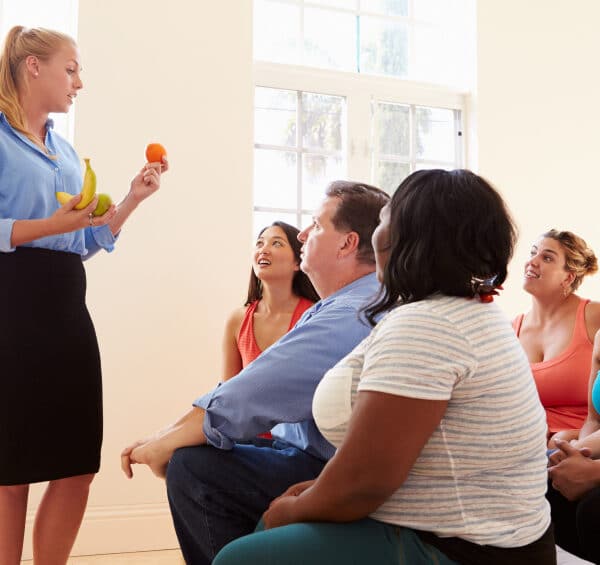 We hear a lot about health inequalities in terms of access to health care and treatment. Many people with learning disabilities tend towards obesity, through lack of access to healthy choices.
We hear a lot about health inequalities in terms of access to health care and treatment. Many people with learning disabilities tend towards obesity, through lack of access to healthy choices.
I’m particularly proud about one of my personal achievements as an adult; over a three-year period I changed my lifestyle and lost over half of my bodyweight. I went from morbid obesity and certain long-term damage to my health, to relative fitness and a grievous smugness around living well. After a lifetime of being fat, I chose to do something about it and I did something about it.
A choice if you want to make it
Making lifestyle changes to support good health is a choice we all have. Heaven knows it’s not an easy one and I am the first to acknowledge how tough losing weight can be. You need all the support, advice and chivvying you can get. For some, this means a radical diet plan. For others, it can involve developing a gym habit. Many people find the assistance and camaraderie of slimming groups hugely helpful on their weight loss journey.
Although we all know that being overweight can lead to longer term health problems and that we have a responsibility to help people we support be more healthy, there are fewer opportunities for people with a learning disability to join and participate in slimming clubs and groups.
A choice not everyone can make alone
A project underway at the University of Sheffield is helping people with learning disabilities choose good health through access to weight management support. WILD – ‘Weight Loss for Learning Disabilities’, in collaboration with Slimming World and with funding from the Medical Research Council, are undertaking a study which seeks to investigate what membership of a slimming club is like for people with learning disability, and how this might be improved to encourage wider use.
Researchers have found that people with mild to moderate learning disabilities are often not even aware of the existence of weight loss clubs, such as Slimming World, and often may not have access to the support to help them go. Those that have managed to enquire about joining may find diet plans and general weight loss materials too complicated and hard to follow.
A chance to get involved
The next phase of the project is seeking to interview existing members of Slimming World clubs who have a learning disability and Slimming World Club leaders to provide stories and contributions to the research.
The researchers hope that some of their findings will be transferable to other mainstream commercial health and fitness activities, such as gyms and yoga classes. So, if you support someone who has expressed a wish to lose weight or who you are assisting to change their habits, it may be possible to be involved in the study or to find out more about the work being done.
There is a good deal of information on the WILD website including easy-read sheets and consent paperwork, details of the background to the study and a news update. There is also some more information about Slimming World Clubs.
Read more at the project website






